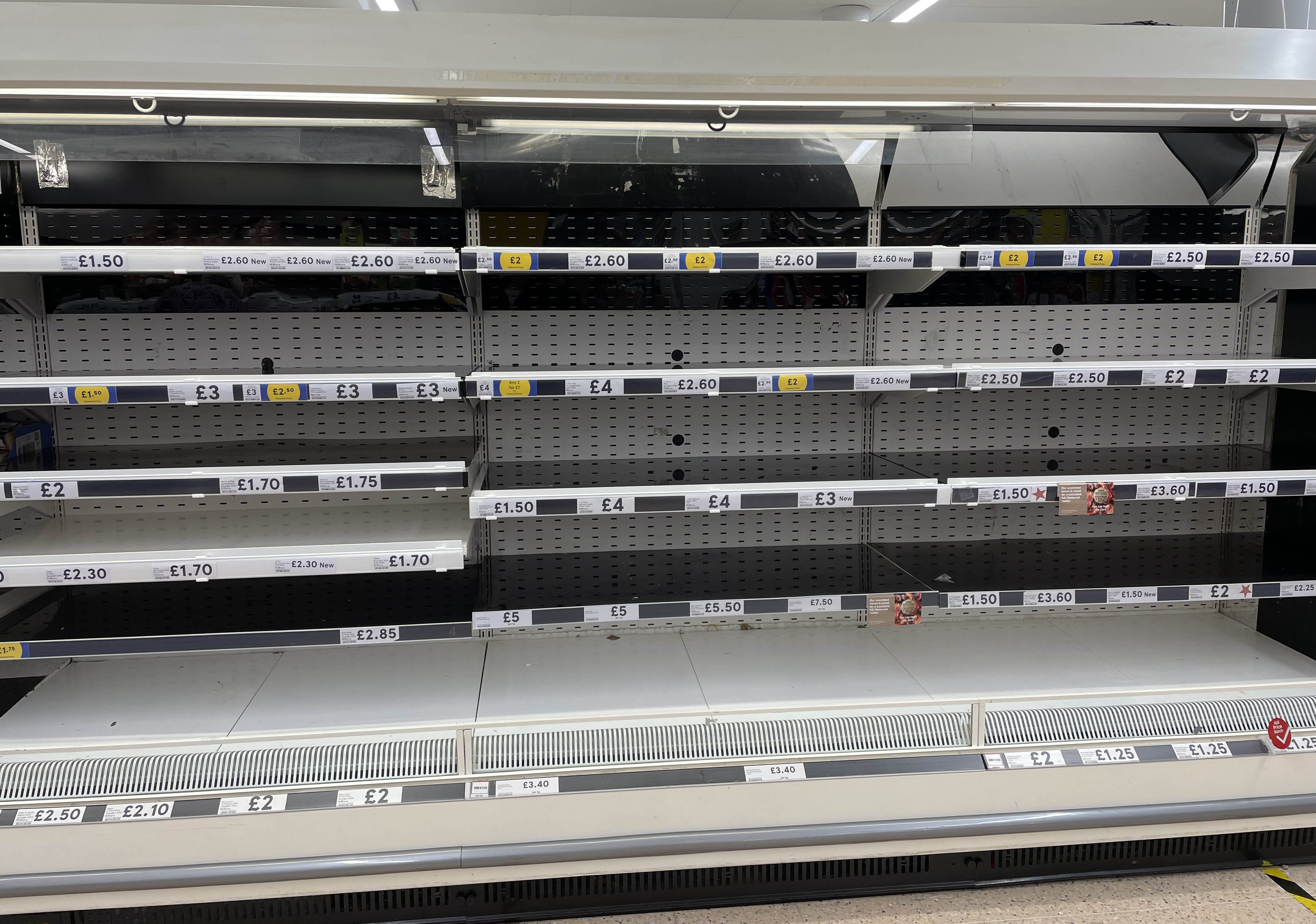Another round of CO2 shortages possible, food and drink industry warns
A shortage developed in September after production was paused at two fertiliser factories in northern England.

Your support helps us to tell the story
From reproductive rights to climate change to Big Tech, The Independent is on the ground when the story is developing. Whether it's investigating the financials of Elon Musk's pro-Trump PAC or producing our latest documentary, 'The A Word', which shines a light on the American women fighting for reproductive rights, we know how important it is to parse out the facts from the messaging.
At such a critical moment in US history, we need reporters on the ground. Your donation allows us to keep sending journalists to speak to both sides of the story.
The Independent is trusted by Americans across the entire political spectrum. And unlike many other quality news outlets, we choose not to lock Americans out of our reporting and analysis with paywalls. We believe quality journalism should be available to everyone, paid for by those who can afford it.
Your support makes all the difference.Britain could face another round of CO2 shortages unless a new deal is struck to secure 60% of the UK’s supply, the food and drink industry has warned.
A shortage developed in September after production was paused at two fertiliser factories in northern England which supply 60% of Britain’s CO2.
US firm CF Industries, which owns the factories, blamed rising gas prices for making its operations unviable.
However, a three-month deal struck by the Government and CF Fertilisers, part of CF Industries, saw the factories reopen and supplies return to normal days later. The Government provided financial support to cover operating costs for three weeks.
The three-month deal ends on January 31.
CO2 is used across numerous industries, including stunning animals for humane slaughter, extending the shelf life of food, making drinks fizzy, aiding in surgical operations and cooling nuclear power plants.
It is frustrating that after three months we're running up to the line and no-one knows where we are
A Food and Drink Federation spokeswoman said: “The security of food-grade CO2 supplies in the UK has been a concern for our industry for some time.
“Last year’s Government intervention which guaranteed CF Industries production of CO2 until the end of this month was very welcome.
“But we are concerned that with just days now remaining before that agreement comes to an end, and energy prices still very high, there will be further CO2 shortages once again.
“This could lead to shortages in the products we find on our supermarket shelves – adding further pressures to families already coping with high food-price inflation.
“We will continue to work with the Government on this. It is critical that together we ensure supply can continue and that we build long-term resilience into the production of food-grade CO2.”
British Meat Processors Association chief executive Nick Allen told the PA news agency it has been assured that animal welfare will be prioritised, along with the NHS and the nuclear power industry.
Mr Allen said: “We’re not panicking that we’re heading into a problem immediately. But it is frustrating that after three months we’re running up to the line and no-one knows where we are.
“The Government is optimistic that the plant is not going to close in the short-term. They are less optimistic that in the longer term it will carry on.
“We’ve found more suppliers but nevertheless, if it closed we would only have about 70% of the CO2 we need for this country.”
On potential price rises, Mr Allen said it is too early to tell if any shortages will lead to shelf prices rising, but added: “We’ve already seen a four-fold increase in CO2 prices since three months ago.”
He warned the situation could get “considerably worse” if Russia cuts off supplies of gas to Europe.
British Beer and Pub Association chief executive Emma McClarkin said: “As the threat of further disruption to the availability of CO2 continues to grow, so does the potential impact on brewers and pubs.
“We continue to liaise with suppliers and are urging the Government to support those manufacturing processes we depend on for the majority of our CO2.
“The sector urgently needs a longer term solution to avoid further, sudden outages – particularly as energy prices are likely to remain high for some time.
“After a devastating winter period for our pubs and brewers, ongoing supply chain disruption could add to the burden of additional costs or seriously hinder our recovery as a sector.
“However, beer drinkers and pub-goers can rest assured there is still plenty of beer to go round.”
A spokesperson for the Department for Business, Energy and Industrial Strategy said: “The Government’s three-week arrangement with CF Fertilisers was necessary to immediately restart operations while a longer term, industry-led agreement was sought without further taxpayer support.
“Without Government intervention, the CO2 shortage could have severely impacted the food processing sector, the National Health Service and nuclear power generation.
“We welcome industry’s agreement in October to ensure CF Fertilisers on Teesside can continue to operate even during the current period of high global gas prices. It is for the CO2 industry to ensure supplies to UK businesses.